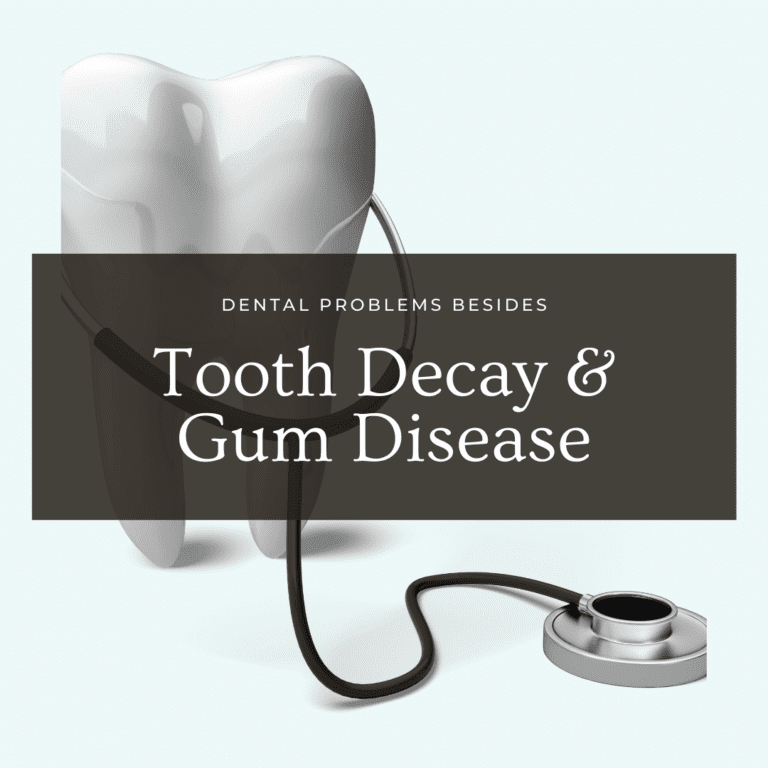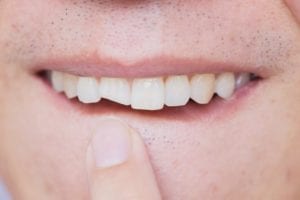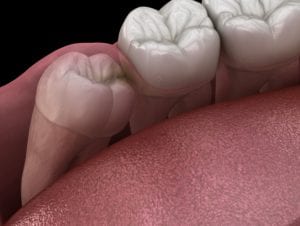Dental Problems Besides Tooth Decay and Gum Disease

When it comes to your oral health, two of the biggest threats are gum disease and tooth decay. In fact, these two dental problems are the most common dental health problems. Unfortunately, however, tooth decay and gum disease are not the only ailments that can negatively impact your oral health. There are various other dental problems that can threaten your oral health. Luckily, your general dentist is able to treat these additional dental problems. Besides tooth decay and gum disease, your general dentist can treat dental problems such as:

A Chipped or Cracked Tooth
Despite the fact that tooth enamel is the strongest substance in the human body, it can still become damaged when exposed to excessive amounts of force. A tooth may chip or crack when biting down on foods or objects that are extremely hard, especially if the tooth structure has been compromised by decay. It is also possible that chips and cracks can develop as a result of teeth grinding and clenching, which gradually weakens the enamel over time. Finally, another common cause of chipped or cracked teeth are accidents involving sports, an impact to the face, or falls. Depending on the severity and location of the damaged tooth, there are various ways your dentist may opt to restore the tooth.
A Dark Tooth
In some cases, trauma to the mouth can cause a single tooth to become discolored or darker than the surrounding teeth. It is possible that the tooth may even look bruised or slightly pinkish in color. In cases where a tooth looks pinkish, your dentist will usually monitor the tooth for changes. However, if the tooth turns grey or black, this is an indication that the tooth has died. When accompanied by pain or swelling, it can also be an indication of a pulp infection. Both dead teeth and pulp infections are treated with a root canal.
Bruxism
Bruxism is a dental term used to describe the behavior of grinding or clenching one’s teeth together. Both behaviors are brought on by stress and are generally performed unconsciously while you are sleeping, which can make it hard to know if you are a bruxer. Your dentist may diagnose you with bruxism if they notice abnormal wear patterns or excessively worn enamel. Once a diagnosis of bruxism is made, you can expect your dentist to prescribe a custom-fitted night guard to protect your teeth and jaw from the effects of bruxism.

Impacted Wisdom Teeth
This is a dental issue that is actually quite common since wisdom teeth are an evolutionary structure of the past that no longer fits in the modern skull. When there is not enough room in the mouth for wisdom teeth, they cannot erupt properly and get stuck in the jawbone or underneath the gums. A partial impaction describes a tooth that has partially erupted, while a complete impaction describes a tooth that is entirely below the gum line. Both types of impacted wisdom teeth can cause a number of problems, therefore they are usually extracted. Signs of impacted wisdom teeth are pain deep in the jaw, redness and swelling towards the back of the mouth, problems with chewing, and possible discharge.
Oral Thrush
Oral thrush is a fungal infection, specifically yeast, that spreads throughout your mouth. It looks like a white film inside the mouth and has a yeasty smell. This condition is rare in the general population, however it is common among people who wear dentures or who have a medical condition that compromises their immune system such as HIV/AIDS, cancer, or unmanaged diabetes. Luckily, this fungal infection is easily treatable with prescription medications.






Recent Comments